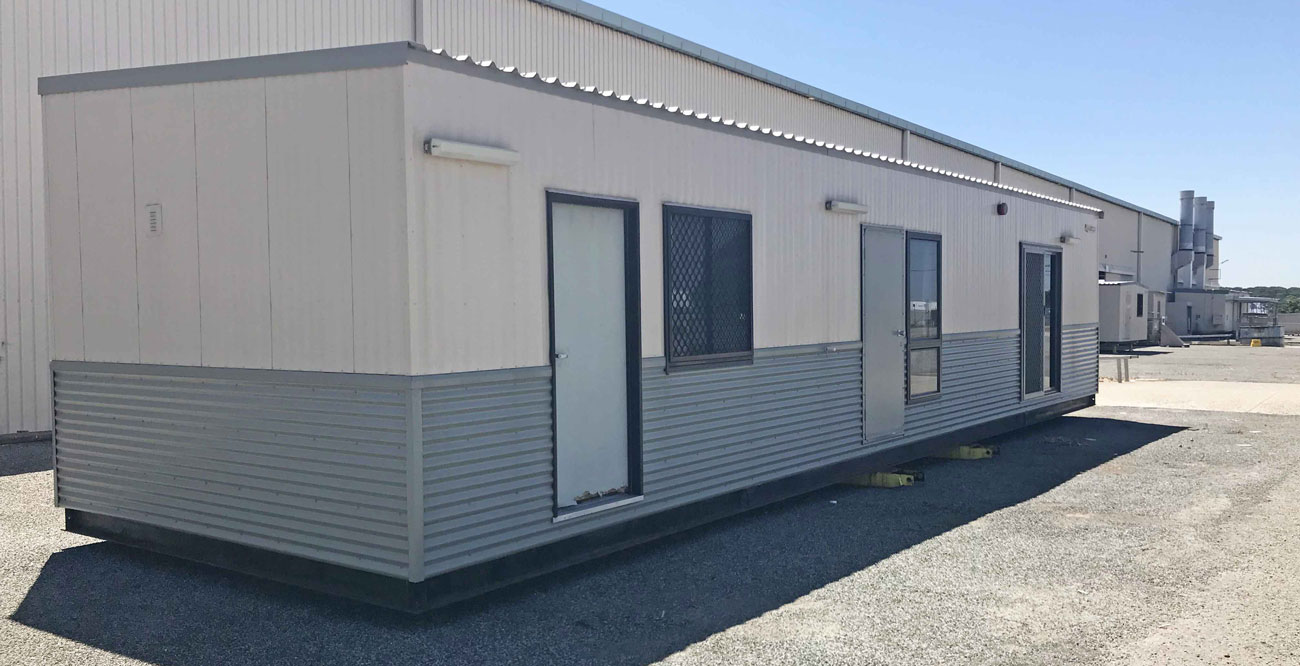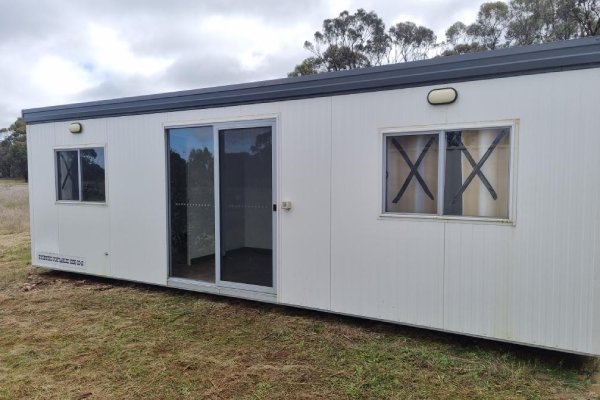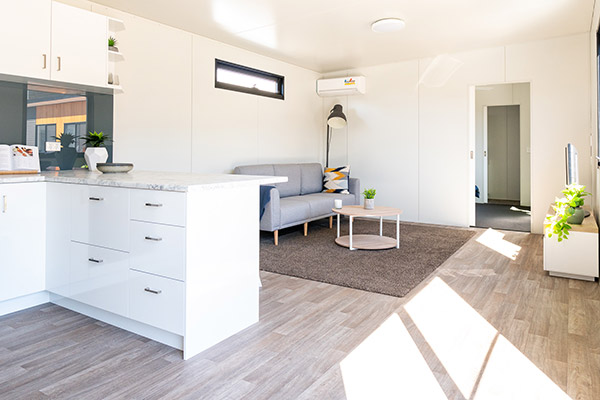At Fox Transportables, the quality of our dongas (and other transportable buildings) is second to none. From time to time, we find potential customers who have a few questions regarding our dongas. Here is a definitive guide to Fox Transportables’ dongas.
What is a Donga?
A donga is the slang term for transportable modular buildings. The main difference between these structures and traditional buildings is that around 90% of a donga is manufactured in a factory. After the factory production is complete, the donga is then placed and finished at the site.
The standard structure and ability to connect make these buildings an ideal choice for locations where flexibility is essential. Dongas also tend to be simple and rectangular. The shape and simplicity make these structures highly adaptable for various settings and uses.
Why are They Called Dongas?
The history behind using the word donga to mean a transportable or modular building is not crystal clear. “There’s a little bit of mystery around this one,” says University of Melbourne linguistics researcher Rosie Billington.
The first account of the word’s use in Australia was in 1900. Although, for several decades, Aussies used the word donga to mean a gully made by the action of water. This definition is the traditional South African meaning, which members of the Australian military may have picked up during their participation in the Boer War between 1899 and 1902.
The first accounts of the current use of donga were recorded in 1941, during World War II. At that time, Aussie troops fought in Papua New Guinea, where the word donga meant house. It is possible that the separate meaning of donga is coincidental, and its early use in Australia was unrelated to its current use.
Typical Uses for a Donga
The modern donga is a far cry from the sweltering boxes that were common decades ago. Clean, comfortable, and climate-controlled, today’s dongas have several uses, including:
- Mining Camps – Dongas serve as worker’s accommodations, offices, kitchen and dining facilities, medical huts, laundry rooms, and shower/lavatory facilities.
- Commercial Uses – Dongas are used as classrooms, storage facilities, office buildings, caravan parks, seasonal worker accommodations, accessible restrooms, custom-use buildings, and homes in lifestyle villages.
- Residential Use – Many homeowners opt to add a transportable donga to their property for use as a granny flat. However, the practical nature of the building does not stop there. Dongas are excellent for pool houses, storage spaces, fitness rooms, artist or workshop studios, and children’s play areas.
How are Dongas Built?
Roughly 90% of a donga is created in a factory setting. Typically, a donga begins as a steel frame and other materials, such as lumber, structurally insulated panels, and wallboard, are added. A significant amount of building materials are recycled, and because a donga is premeasured and factory-produced, constructing one produces much less waste than traditional construction.
Once the components are complete and the building site is prepared, all necessary parts arrive at the site and are assembled according to specific plans.
Why Aren’t There More Dongas Built for Residential Use in Australia?
A common drawback to the donga is its reputation as a second-rate form of accommodation. Even though modern dongas are climate-controlled and cyclone-rated, many people cling to the idea that this type of building is hot, smelly, and generally unpleasant. Nothing could be further from the truth. As time passes and more people get firsthand experience with modern dongas, these outdated opinions will gradually disappear.
What Are Some Benefits of a Donga?
There are several benefits that today’s modern dongas offer. These include:
- Fast Construction – The factory work for a donga can be done between 10 days and three weeks. Once delivered, the outer structure assembles in a matter of a few days.
- Durability – A donga must meet the exact safety requirements of homes built using traditional construction methods. They can be cyclone rated, withstand earthquakes and are made of quality materials.
- Sustainably Built – The primary material used to build a donga is steel, which is highly recyclable. The majority of materials used in creating a donga are recyclable.
- Affordable – Whether you need dongas to house an entire mining camp or you want extra space for family recreation, you cannot beat the price of a donga.
- Customisable – Because a donga begins with a basic shape, it is easy to add and adjust other sections to create the space you need as well as the look you want. A donga does not have to be a dull box.
- Flexibility – You can continue to add to your facilities almost indefinitely. So, if your small crew grows or your need for office space increases, you can expand in weeks, not months.
- On-Hand Stock Available – Typically, Fox Transportables has stock ready to go. All of our units on hand meet the same standards of quality materials and expert engineering as custom-built dongas. The specific units may vary, but you can usually choose from commercial, permanent, and seasonal accommodations.
You may be wondering if a donga is the best transportable building to meet your needs. While there is a good chance that a donga will fill the bill, you may find another type of transportable that ticks off a few more boxes. To learn more about our full line of transportables, feel free to contact Fox Transportables. Our experienced team members can explain your choices and help you purchase the building that will serve you best.



